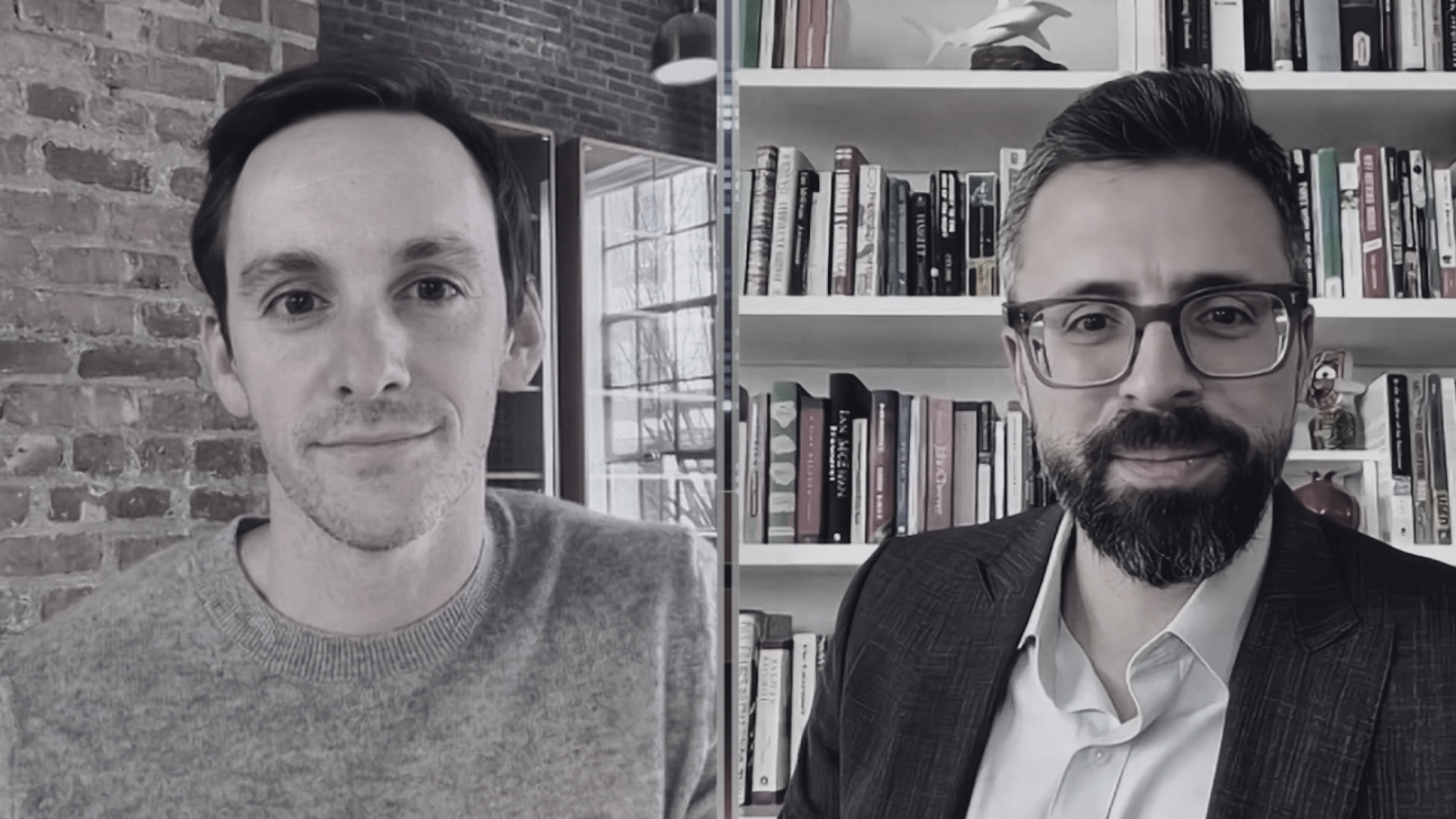
The Coming Conservative Civil War
Recently during a handoff between Tucker Carlson and Sean Hannity, viewers witnessed the clash between the emerging “common good” capitalism of national conservatism and the traditional pro-market conservatism. Thrust abruptly under the microscope was a raw glimpse at the debate beginning to rage between conservative intellectuals that will decide the future of the American right.
Tucker Carlson concluded his show questioning the justness of Jeff Bezos increasing his wealth by $13 billion in one day. How could this be right while so many people are furloughed, laid off, or struggling during this economic crisis? Sean Hannity utilized his opening monologue to rebuke Tucker.
“People who make money, they provide goods and services that people want, need and desire. That’s America. It is called freedom, capitalism, and as long as it is honest, people decide” he said. “Alright Tucker, great show.”
The 2015 Republican presidential primary may have seemed like the conservative civil war. That was just the spark, and at best a battle between personalities. The real fight is going to be a war of ideas and if classical liberals and libertarians have any home with the American right.
The traditional right wing of American polity has always welcomed a broad coalition of philosophies. Neoconservatives, social conservatives, libertarians, classical liberals, and constitutional conservatives have always had a home on the right. The right has always paid lip service to free market ideas and the liberal founding of our nation. Although they seem never to have the courage to get behind many needed market-based reforms. Now there is a growing national conservative coalition that is looking to remake the right. Their argument is that the (classical) liberal ideals that America was founded on are directly to blame for the moral decline of our society. People are making bad choices in their personal lives, and in order to turn society around, we need to abandon the free market and liberal ideals for a more managed economy and society. They call it common good capitalism.
The advocates of this “common good” ideology have their leaders in Senators Marco Rubio and Josh Hawley in Washington D.C. The intellectuals behind the politicians are led by Sohrab Ahmari at First Things Magazine and Oren Cass of the American Compass. These adherents to this “new conservatism” claim that, like progressives, classical liberals seek only to expand personal autonomy with no regard for restraints or personal responsibility. Because of this, the American founding was flawed and contained within in it the poison pill of its own undoing.
These common good conservatives seem to ignore or have completely missed the constant “moral” outrage expressed by progressives. The left has always bemoaned the perceived ills of society, and firmly believed that with a little more top down management we can remake society and institutions. Then people will start making better decisions, and we will have a moral and just society. With the common good conservatives, it is the left who has a new ideological ally. They have different visions for the end state, but they both believe man and society can be morally reformed with the right politicians and policies.
Progressives and national conservatives lay the blame at the feet of the liberal American tradition. To simplify, they believe society’s ills are due to people having too much freedom.
Step one for “common good” conservatives is to banish anyone who defends the liberal idealism that is fundamentally American. Classical liberals and libertarians are going to be faced with two choices: to either pick up their ball and go home or make a stand for liberty. This is not about which political party traditional conservatives and libertarians should be a part of. It is a debate about the future of America. Will it be a post-liberal future where the levers of power will be fought over by progressives and national conservatives, both determined to remake the nature of man and society? Or will it be a renewal of the liberal ideals that America was founded on?
F.A. Hayek in his essay, “Why I Am Not a Conservative,” explains that liberals must often align with conservatives to combat collectivism from the progressive left and socialists. But what happens when conservatives start embracing collectivism and are prepared to reject the liberal founding of America they used to celebrate? Libertarians and classical liberals have no choice; they must engage in the intellectual battle.
Common good conservatives and progressives are no friends to freedom, yet they both have assumed the moral high ground. They see society plagued with injustice and moral depravity due to the choices made by individuals. They will use the moral high ground to justify the coercion of people towards more “virtuous” choices. Even if their definition of virtue is objectively true, a morality that is coerced is not moral at all. Forced virtue deprives the individual of agency and if an act is not freely chosen it cannot be moral. Their intentions may be good, but to remove from individuals the opportunity to choose the good, both progressives and common good conservatives will fail in their attempts to create a more virtuous society. To act moral an individual must have liberty.
Classical liberals and libertarians need to reclaim the moral high ground that is rightfully theirs.
Capitalism and free markets are the economic pieces of a society ordered towards liberty. They simply mean the right to private ownership, strong private property rights, equality under the rule of law, ability to freely choose whom you contract with, and the freedom to be generous. Freedom allows for the fostering of morality within society. At the heart of liberty and the application of free markets is the objective moral truth that all people have dignity.
This dignity is violated when humans are deprived of their liberty. There is no room on the moral high ground for those who believe that people should not be free. Common good conservatives and libertarians may share the same end goals: a society that is moral, just, and virtuous where people can live peaceful and prosperous lives. Contrary to libertarians who still believe in the ability of their arguments to persuade, this new conservatism tragically no longer has confidence in their ideas to win the day. Much like the regressive left, they are now looking to the state to implement their plans.
“An idea which needs rifles to survive dies of its own accord” —Fr. Jerzy Popieluszko
Common good conservatives correctly believe liberty should have limits, but they wrongly believe that the power of the state is needed to enforce those limits. Classical liberalism has always held that it is the authority of non-state institutions that is needed to properly enforce limits on individual liberty: institutions such as the family, the church, and the community. There is an important distinction between power and authority that progressives and conservatives miss. Power is something that is forced. There is no opportunity to voluntarily submit to the power, and the state has a monopoly on it. Authority is what an individual voluntarily places himself under and can exit at any time. When the state exceeds its proper role and begins to take on the authority that should be left to other institutions it begins eroding those institutions.
Many Americans lament the breakdown of the family unit, the empty pews in churches, the quality of our education system, and the perceived immoral choices society makes. The erosion of the family, church, and communities has occurred gradually as the political system has taken on responsibilities that properly ordered should be left to these groups within society. Progressives have always advocated for the political apparatus to take on more and more responsibilities despite its abysmal track record. Now national conservatism and their “common good” philosophy seek to apply the same failed prescription. Lovers of liberty have their work cut out for them, and they must not shy away from the fight.
“Therefore, everyone, in his own interests, must thrust himself vigorously into the intellectual battle. None can stand aside with unconcern; the interest of everyone hangs on the result. Whether he chooses or not, every man is drawn into the great historical struggle, the decisive battle into which our epoch has plunged us.” —Ludwig von Mises
Classical liberals and libertarians must vigorously take on the task of engaging in the ideological war that is coming from the progressive left and nationalist right. Those who value human dignity and freedom must take back and guard jealously the moral foundation of liberty. If lovers of liberty can do this, then an American future worthy of the American founding will be secured.
Free the People publishes opinion-based articles from contributing writers. The opinions and ideas expressed do not always reflect the opinions and ideas that Free the People endorses. We believe in free speech, and in providing a platform for open dialogue. Feel free to leave a comment.




Tim Hong
Excellent